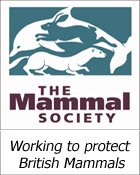|
I enjoy receiving photos of found skulls and thought it would be instructive to show these as examples of “real” specimens, a little more challenging than idealised studio shots and each with its own story to tell.
A skull can't always be identified to species from a photo, but if you think you can improve on my identifications let me know, and if you find an interesting skull, please send me a photo. |
| |
|
|
Bruce : Alaska
A carnivore jaw with a prominent canine tooth but no clearly defined posterior angle. Even though the other tooth sockets are not clearly shown they can be seen to be a simple, circular shape and few in number. This is from a species of seal and given the provenance and the size (11 inches) it is probably from a male sea lion.
Similar species on this website at Grey Seal
|
| |
|
|
Terry : Anglesey
A canid skull, missing its premaxillas. The triple-pointed incisor teeth, along with the robust carnassial tooth and jawbone suggest that this is the skull of a domestic dog. I would, however, expect the forehead to show a more pronounced rise and the anterior end of the zygomatic bone is unusual. It may be a young animal.
On this website at Domestic Dogs
|
| |
|
|
Seth : Emerald Isle, N. Carolina
These objects are frequently confused with skulls; they are bilaterally symmetrical and have lateral sockets which look like eye sockets. In fact it is the pelvis of a bird, the sockets are the hip joints.
|
| |
|
|
Mary : Monmouthshire
A deer skull, showing no sign of antlers and therefore probably female (except caribou). Deer skulls are similar to sheep and other artiodactyls but can be distinguished by the large gap in the bones in front of the eye sockets for the preorbital glands. The narrow, fragile-looking snout and dished profile between the large eyes are also useful identification clues. This appears to be a roe deer skull.
On this website at Roe Deer
|
| |
|
|
Fatima : Toronto
This is the skull of a raccoon. Even in its broken, toothless condition there are only a limited number of species of medium-sized carnivores in most areas and the rounded profile is distinctive.
On this website at Raccoon
|
| |
|
|
Ian : Summer Isles, Scotland
A bird skull found on the coast suggests a seabird and this is from a razorbill Alca torda. The shape of the beak is distinctive and the i/d can be checked on Wouter's excellent bird skull website.
On Bird Skull website at Razorbill
|
| |
|
|
Helen : Dorset
Other photos sent by Helen showed unfused sutures on this skull, indicating that it was a young animal. Unfortunately, the muzzle, with the teeth, is missing but the overall shape and incomplete eye socket indicate a carnivore. In the UK the choice of medium-sized carnivores is limited to fox, badger, cat, dog, otter. I think this is a young badger.
On this website at Badger
|
| |
|

*NEW* Fruit Bat
* * * * *
Tara Marzuki fashion design

Found one of these ?

|



